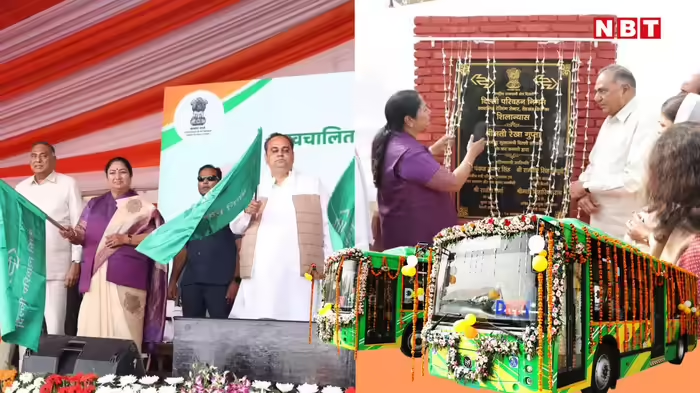
New Delhi: In a major push to control pollution in the national capital, the Delhi government took two significant initiatives on Friday. Chief Minister Rekha Gupta inaugurated the first batch of 50 modern electric buses, while simultaneously laying the foundation for an Automated Vehicle Fitness Testing Station (ATS) at the Tehkhand depot to ensure proper fitness checks for commercial vehicles, one of the leading contributors to air pollution. The event saw the presence of Transport Minister Dr. Pankaj Kumar Singh, MP Ramveer Singh Bidhuri, and other officials.
A Key Step Towards Pollution Control
While flagging off the buses, CM Gupta highlighted that her government has made remarkable progress in the transport sector within just eight months, adding 1,350 electric buses to the city’s fleet—an impressive achievement compared to only 2,000 buses added in the past 11 years. She described the launch as a major step towards controlling urban pollution.
Bus Fleet Details
Of the 50 buses launched, 30 are 12-meter low-floor AC buses and 20 are 9-meter low-floor AC buses. All buses are equipped with CCTV cameras, panic buttons, and GPS tracking. Additionally, previously suspended routes have been reinstated, including interstate services and the “Youth Special” university buses that were discontinued by the previous government.
Automated Vehicle Fitness Testing Station (ATS)
The new ATS at Tehkhand will conduct fully digital and automated fitness tests for commercial vehicles, ensuring accurate emission monitoring with minimal human intervention. Delhi has around 650,000 commercial vehicles requiring annual fitness checks, but previous arrangements were inadequate. Earlier, only the Jhulelal center existed, capable of testing 47,000 vehicles annually. With the new ATS and upgrades to the Burari and Jhulelal centers, the city will now be able to conduct automatic fitness checks for over 100,000 vehicles each year.
Revenue Generation and Modernization
Transport Minister Dr. Pankaj Singh noted that the Tehkhand ATS, built at a cost of ₹10 crore, will carry out comprehensive digital inspections of brakes, suspension, underbody, headlights, axles, and emissions, generating an estimated ₹3 crore in annual revenue. The initiative is expected to significantly reduce vehicle emissions and improve overall air quality in the capital.
With these steps, the Delhi government aims to modernize public transport, promote sustainable commuting, and strengthen pollution control measures across the city.
Discover more from SD NEWS agency
Subscribe to get the latest posts sent to your email.
